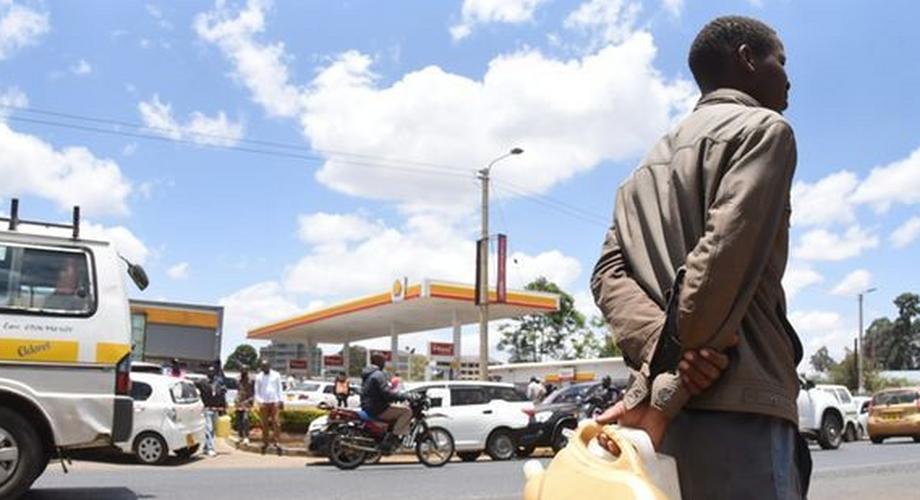A man with jerrycans waits to buy fuel in Eldoret town on April 3, 2022 amid a biting shortage. Kenya is staring at a fuel crisis due to delays in subsidy payouts by the government. Jared Naytaya | Nation Media Group The current fuel shortage experienced in most parts of the country has been attributed to the government’s delay in releasing Sh13 billion owed to Oil Marketing Companies (OMCs).
OMCs are companies registered by law to procure and sell petroleum products to bulk customers and the general public through retail stations and reseller outlets. An example of an OMC is Total Kenya Limited.
Petroleum Principal Secretary Andrew Kamau on Wednesday, March 30 admitted there was a delay in subsidy payouts and linked it to an ongoing verification of the amounts due to each firm based on their sales volumes.
“There is a one-month delay. This is due to the verification process that takes place to make sure the right companies are paid the right amounts,” he told Nation.Africa. A boda boda rider takes a nap on his motorbike while waiting for fuel at a petrol station in Eldoret, Uasin Gishu County, on April 3, 2022. Jared Nyataya | Nation Media Group Delays in the subsidy payout mean that oil marketers either have to tap into their cash reserves or take loans to restock their fuel supplies.
The state introduced the subsidy scheme on April 14 2021, where it agreed to pay oil marketers for the high cuts on their margins to keep recommended pump prices .
The subsidy scheme has been supported by billions of shillings raised from fuel consumers through the petroleum development levy, which was increased to Sh5.40 a litre in July 2020 from Sh0.40, a 1,250 percent rise.
The levy cushions consumers from volatility in fuel prices but has also seen motorists lose out when paying the Sh5.40 for a litre at the pump. Members of the public help push a motorist whose fuel ran out while queueing at a petrol station in Eldoret town, Uasin Gishu County, on April 3, 2022. Jared Nyataya | Nation Media Group The government partially applied the fuel subsidy this month, which saved consumers from paying Sh155.11 for a litre of petrol.
Energy and Petroleum Regulatory Authority (EPRA) revealed consumers would have paid Sh143.16 for diesel and Sh130.44 for kerosene had the state not intervened, underlining the importance of the subsidy.
Consumer Federation of Kenya (COFEK) Secretary-General […]
